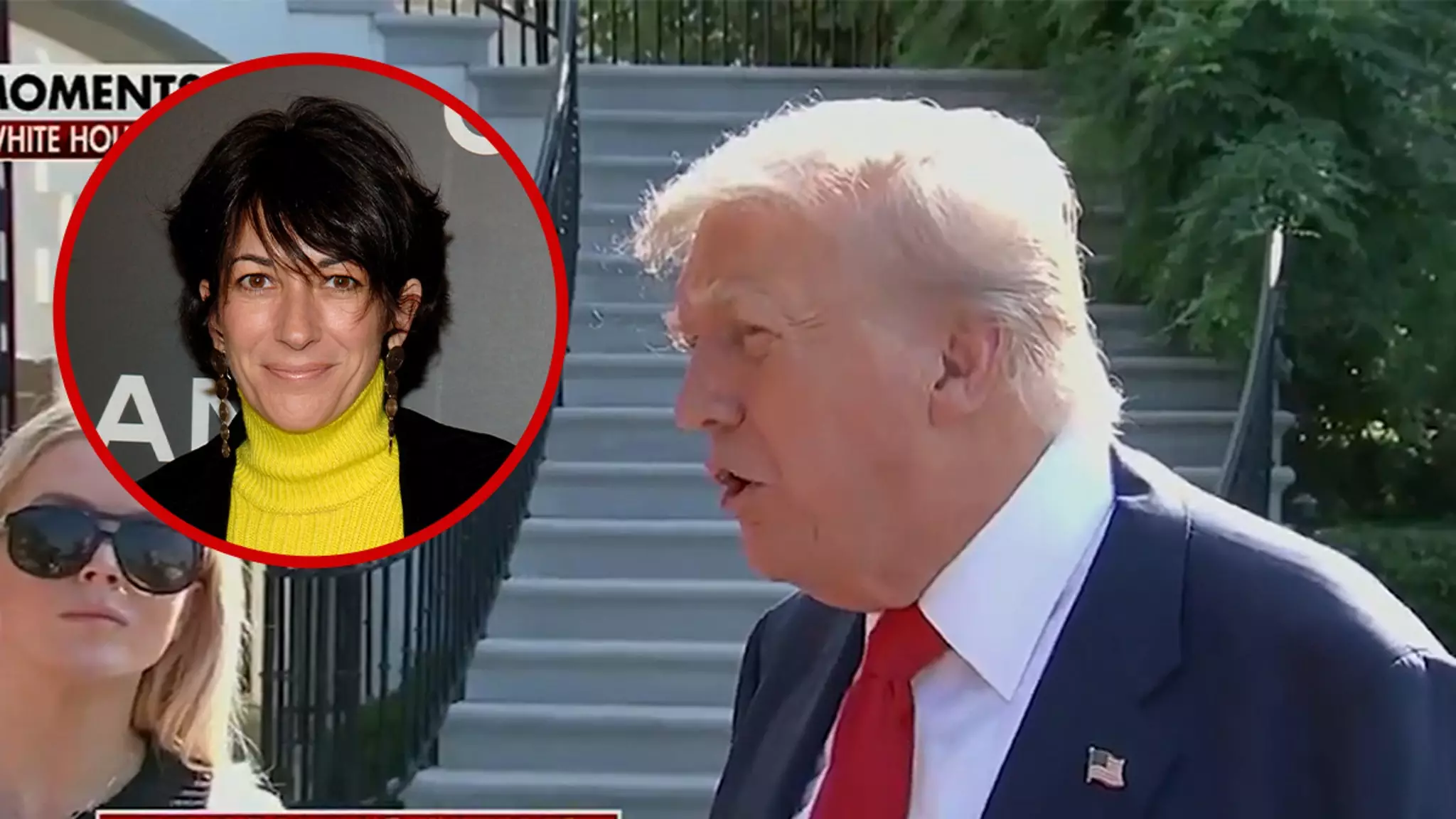In the labyrinth of political discourse, few topics remain as contentious and emotionally charged as the intersection of justice, power, and accountability. The recent comments by President Donald Trump regarding Ghislaine Maxwell serve as a stark reminder of how political figures often oscillate in their stance—sometimes overtly, sometimes subtly—highlighting the fragile relationship between public statements and underlying motives. What appears initially as a firm denial or unwavering stance can later be retracted or nuanced, reflecting strategic recalibrations rather than genuine shifts in conviction. When the White House previously asserted there were no plans to consider pardoning Maxwell, those claims seemed like a reassurance to the public and law enforcement alike. Yet, the president’s recent ambiguous remarks reveal how fluid public narratives can be, especially in politically sensitive cases involving high-profile individuals tied to powerful figures.
Such reversals are not just rhetorical spins. They expose the undercurrents of political calculation that often underlie official communication, especially on cases that stir immense public interest or threaten the reputation of influential figures. Leaders, consciously or not, walk a tightrope between maintaining a facade of unwavering commitment to justice and cultivating strategic flexibility, sometimes to shape public opinion or influence legal outcomes. This inconsistency can erode public trust in the justice system and fuel conspiracy theories, which are already rampant in this case. It is more telling how political figures respond to pressure—did Trump’s comments reflect genuine reconsideration, or are they part of a calculated effort to keep options open? Only time will tell, but this flip-flop underscores the importance of scrutinizing political statements for motives beyond their face value.
Justice in the Spotlight: The Elusive Pursuit of Truth
At the heart of this controversy lies a complex web of legal proceedings and whispers of cover-ups. The case against Maxwell, resulting in her 20-year prison sentence, was seen as a significant step in holding accountable those involved in Epstein’s sordid network. Yet, the ongoing speculation about her potential pardon underscores the persistent perception that certain powerful figures may attempt to influence or undermine the judiciary process. When a deputy attorney general conducts clandestine interviews with Maxwell, it signals a departure from normal prosecutorial protocol, raising questions about transparency and the influence of political actors in ostensibly independent investigations.
The narrative becomes even murkier considering Epstein’s death and the staggering rumors of a “client list” that some officials claimed to possess. Such assertions, whether substantiated or not, keep the public wrestling with the possibility that the justice system may have been compromised from within—an unsettling thought in a nation built on the rule of law. The recent media revelations about Trump’s alleged bawdy birthday message to Epstein, along with congressional subpoenas for Maxwell, deepen the intrigue. These developments reinforce the notion that the matter is far from resolved and that truth remains elusive amid competing interests, opaque investigations, and political agendas.
The Power of Public Opinion and Media Narrative
The intense scrutiny from the media and the fervent fan base of conspiracy theorists challenge the authorities’ attempts to maintain order and credibility in the Epstein-Maxwell saga. When the Justice Department initially denied Epstein had a client list, only for subsequent reports to cast doubt on that claim, the credibility of official statements was severely called into question. In the age of instant information and viral speculation, official silence or mixed messages often serve only to deepen mistrust and fuel speculation.
President Trump’s perceived openness to reconsidering the Maxwell pardon reflects a broader trend where political leaders are swayed by public sentiment or pressure from loyal factions. The MAGA base’s unwavering focus on the Epstein case exemplifies how moral and political outrage can become intertwined into a collective narrative that defies resolution. Such narratives have real consequences: they influence voter perceptions, sway policy decisions, and shape the political landscape. While some may see these controversies as petty distractions, they are, in reality, reflections of broader societal tensions—confusions around justice, transparency, and the power dynamics that underpin them.
Ultimately, the Epstein-Maxwell saga exemplifies how justice can become entangled with politische interests. It reveals the vulnerabilities of legal institutions when subjected to public scrutiny and political interference. As new revelations unfold, it becomes evident that the pursuit of truth in such sensitive cases is less about the straightforward administration of justice and more about navigating a complex web of interests, loyalties, and perceptions. In this climate, the critical observer must remain vigilant, questioning motives, scrutinizing official narratives, and demanding accountability beyond mere words. Only then can society hope to sift through the noise and seek a semblance of genuine justice.

